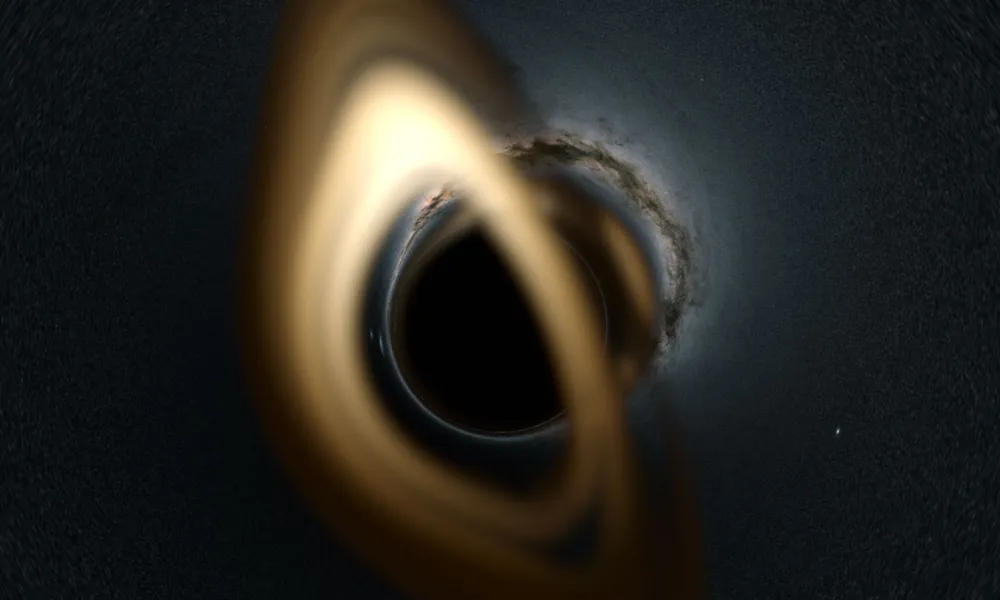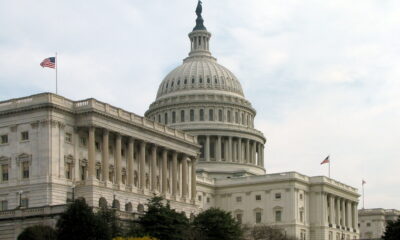News
Astronomers discover closest black hole to Earth

Astronomers have discovered a black hole closer to Earth than any other till date. It is estimated to be of ten solar mass and just 1,600 light years away, which is tagged to be very close on the vast cosmic scale.
Though only 20 black holes have been found in the Milky Way, scientists estimate that some 100 million more black hole are wandering in our galaxy.
With so many more undetected, the newly discovered shouldn’t hold the title of “closest to Earth” forever, suggests the paper published last month in Monthly Notices Of The Royal Astronomical Society.
According to Kareem El-Badry, an astrophysicist at the Harvard-Smithsonian Center, there are probably a lot more black holes which are closer.
Most black holes are born from the spontaneous collapse of a super massive star under its own gravity. After a supernova explosion, the densely packed matter in relatively small space is the black hole. Gravity being so powerful, things including even light can’t escape from the exceptional pull.
Since no light leaves a black hole, scientists observe black hole by it’s unique pattern of X-rays emission. El-Badry and his colleagues found a hint to this one’s existence in data from European Space Agency’s GAIA Spacecraft, which tracks the position and movements of stars in the Milky Way.
Star constellation Ophiuchus was tracing an unexpected path, and there they figured out the gravity of an unknown massive object.
The researchers then used observations from other telescopes, including one run by the NOIRLab (National Optical-Infrared Astronomy Research Laboratory).
The star nearby the found black hole is about the same size as the Sun, and they are roughly as distant as our earth and the Sun.
Questions are arose about why wasn’t the star consumed during it’s parent star expanded and died. The answers will help us to know more about such binary systems as well as how many of these dormant black holes are out there.
Terry A. Hurlbut has been a student of politics, philosophy, and science for more than 35 years. He is a graduate of Yale College and has served as a physician-level laboratory administrator in a 250-bed community hospital. He also is a serious student of the Bible, is conversant in its two primary original languages, and has followed the creation-science movement closely since 1993.
-

 Civilization5 days ago
Civilization5 days agoMaduro’s Capture: U.S. Foreign Policy in Latin America
-

 Guest Columns5 days ago
Guest Columns5 days agoA Bipartisan Fix for the Prescription Drug Market
-

 Education3 days ago
Education3 days agoIgnoring the Science: The Curious Case of Cell Phone Bans
-

 Guest Columns4 days ago
Guest Columns4 days agoWaste of the Day: Thousands of Earmarks in Illinois State Budget
-

 Civilization3 days ago
Civilization3 days agoA Better U.S. Strategy for Greenland Than Annexation
-

 Education4 days ago
Education4 days agoA Solid Core Enlivens Free Speech and Viewpoint Diversity
-

 Civilization4 days ago
Civilization4 days agoEnd the Filibuster – Or Stop Pretending To Govern
-

 Executive2 days ago
Executive2 days agoWaste of the Day: Utah University Trustees Don’t Know Their Job


